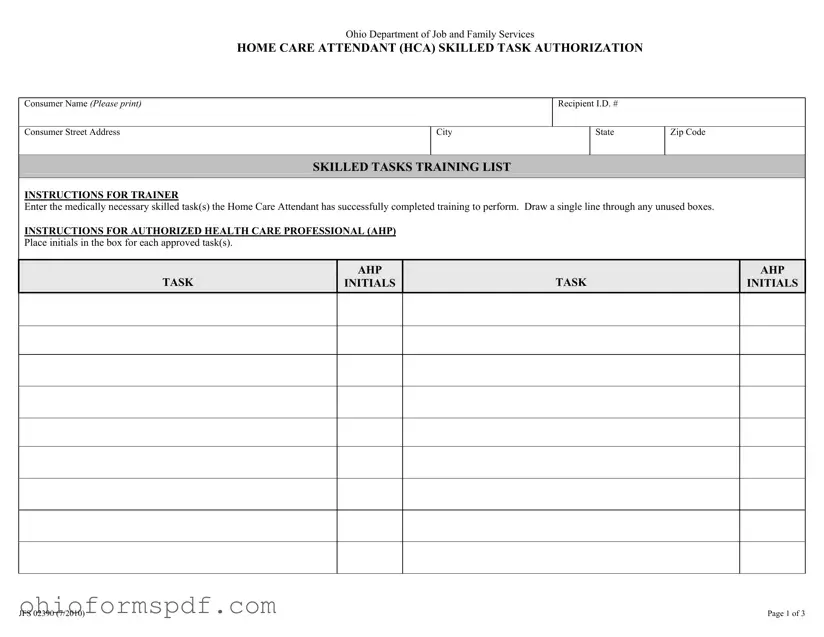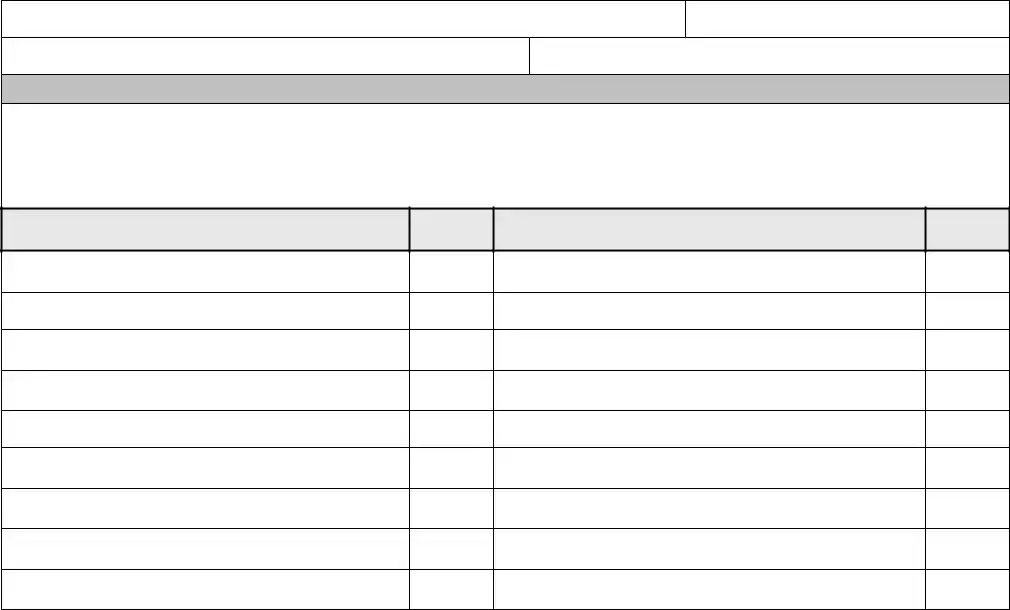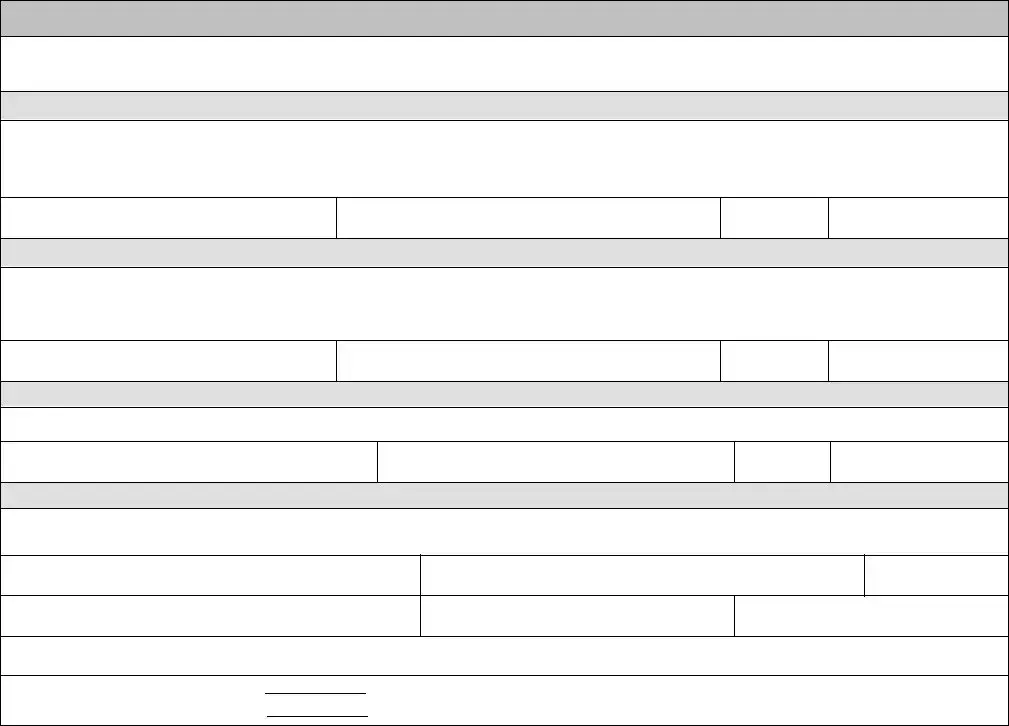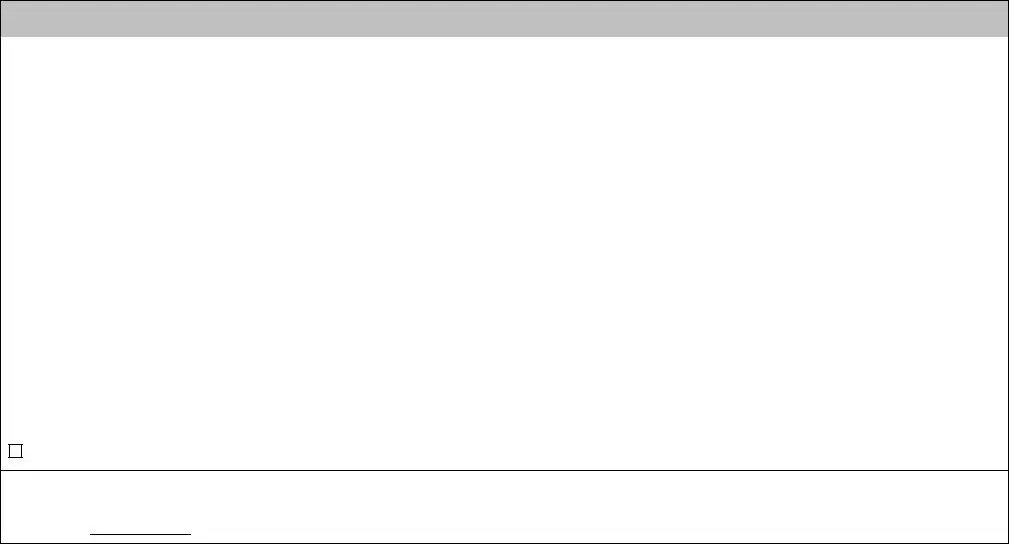What is the Ohio JFS 02390 form?
The Ohio JFS 02390 form, issued by the Ohio Department of Job and Family Services, authorizes specific skilled tasks that a Home Care Attendant (HCA) can perform for a consumer. This form is a critical part of documenting the training and approval process for HCAs to undertake medically necessary tasks under the supervision of an Authorized Healthcare Professional (AHP).
Who needs to complete the Ohio JFS 02390 form?
Several individuals are involved in the completion of the form: the consumer or their authorized representative, the Home Care Attendant (HCA), the trainer (which in some cases can be the consumer or authorized representative), and the Authorized Health Care Professional (AHP). Each has a distinct part to fill out, confirming training, understanding, and authorization of skilled tasks.
What are "skilled tasks" as referred to in this form?
Skilled tasks refer to medical or health-related activities that require specific training for a Home Care Attendant to perform. These tasks go beyond basic care needs and are typically tailored to the unique health requirements of the consumer, necessitating proper training and authorization from a healthcare professional.
How is the training for these skilled tasks documented?
The trainer is responsible for detailing the training process on the form. They must list each medically necessary skill, the date the training was completed, and a comprehensive description of how the HCA is to perform the task. This section ensures that the training is specific, thorough, and appropriate for the consumer's needs.
Who can act as an Authorized Health Care Professional (AHP)?
An AHP can be any licensed healthcare professional recognized by the state of Ohio to supervise and authorize the skilled tasks performed by a Home Care Attendant. This includes, but is not limited to, physicians, registered nurses, or any other professionals deemed qualified under Ohio's regulations to fulfill this supervisory role.
What happens if a task is no longer needed or the HCA can no longer perform it?
If a task becomes unnecessary or the HCA is unable to perform it due to changes in the consumer's health or the HCA's circumstances, it is crucial that this situation is reported immediately to the Case Management Agency (CMA) Case Manager, the trainer, and the Authorized Health Care Professional. They will take the necessary steps to adjust the care plan or revoke the authorization as needed.
Is there a validity period for the authorization of tasks on the form?
Yes, the authorization for the HCA to perform the specific skilled tasks is valid for a period not exceeding 12 months from the effective start date. It is essential for the AHP to review and possibly renew the authorization periodically to ensure it aligns with the current health needs of the consumer.
What should be done if a physician does not support the use of an HCA?
In situations where no physician supports the decision for a consumer to utilize a Home Care Attendant, or if a physician is not available, a Registered Nurse (RN) serving as the Authorized Healthcare Professional must be notified. The RN must be made aware of the physician's non-support or exclusion, ensuring all healthcare decisions are made with full acknowledgment of the consumer's healthcare situation.




